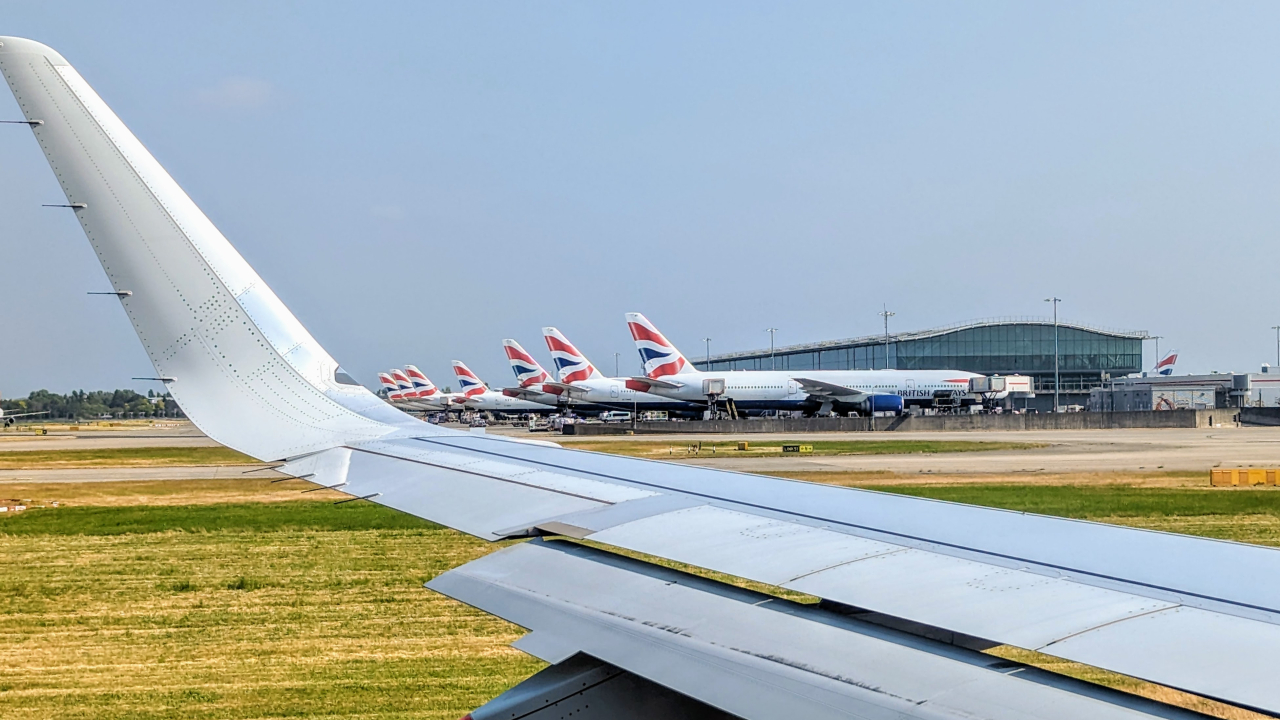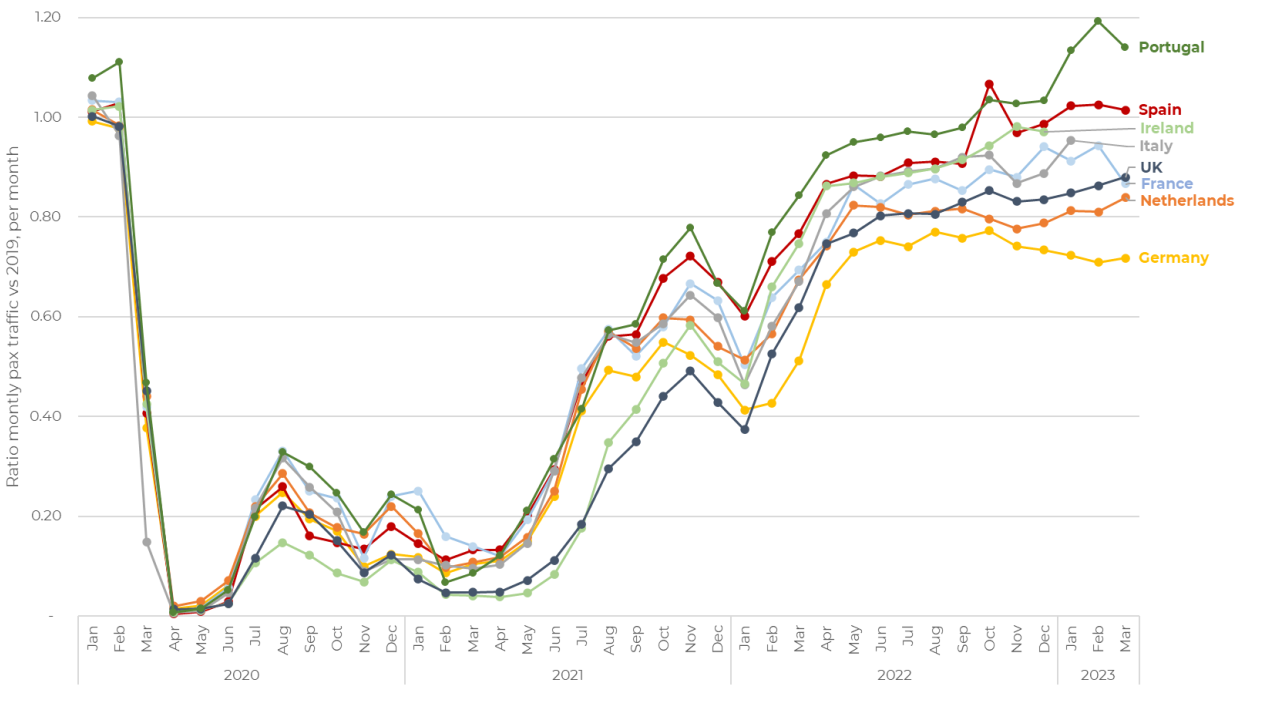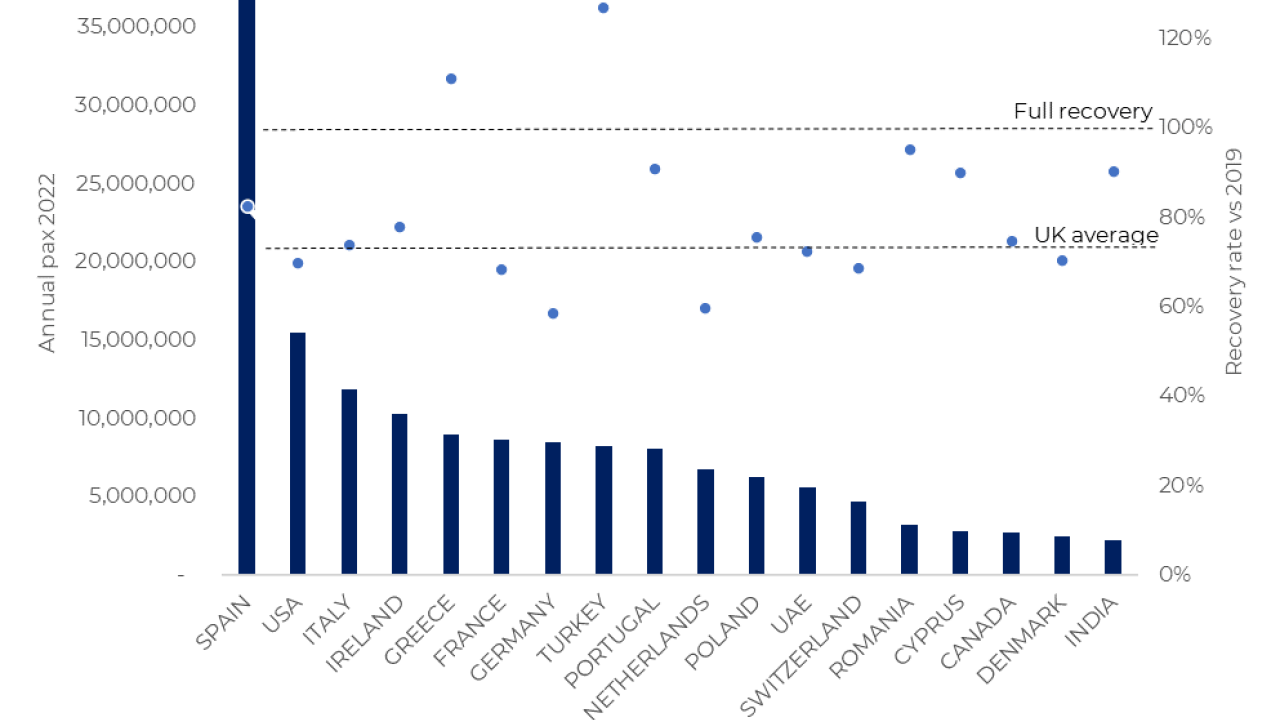How Damaging was Brexit to UK Air Travel?
Dion Zumbrink
June 14, 2023

British Airways planes at London Heathrow's Terminal 5.
© Kevin Rozario /
Brexit was finally in effect from January 2021 after various delays. This brought changes to many aspects of the UK economy, international business, policies and regulations, and travel.
Travel industry experts had long been making assessments on the Brexit impact on air travel, anticipating an economic hit and administrative and operational issues for airlines.
With the COVID19 pandemic and its subsequent effect on global aviation, it has been difficult to extract the impact from Brexit alone. Now, with 2.5 years of traffic data available, it is possible to make some comparisons and see if any deficiencies can be identified between the UK and European Union (EU) air traffic recovery post-pandemic.
Initial Impact & Recovery Trend
Monthly air traffic data from the EU and UK show similar results in early 2020 as travel restrictions were applied globally. The chart below shows monthly air traffic per country, relative to 2019 which was used as the reference year.

The UK's air travel recovery is in the middle of the pack, with Germany proving to be the laggard.
© Dion Zumbrink
While the initial impact is relatively similar in April-June 2020, the UK performed well below the European average from summer 2020 until the beginning of 2022. This can largely be attributed to strict COVID travel restrictions imposed due to new variants of the virus. From February 2022, traffic across Europe started ramping up, and UK traffic made a quick recovery to end up in the middle of the range compared to EU countries, ahead of Germany and the Netherlands in Q4 2022 and Q1 2023.
In 2022 overall, the UK recovered to 75% of 2019 volumes, which is similar to the European average which stands at 77%. Therefore, no immediate impact of Brexit can be clearly identified. In fact, while recovery continued throughout 2023 for the UK, it slowed in Q1 2023 for most European countries, most notably Germany, France, and Spain.
Germany has been lagging behind Europe since 2022, mainly due to a slow recovery of domestic travel, a sluggish economy, and the delayed return of low-cost carriers due to high airport fees. Greece and Turkey have shown the highest recovery while traditional markets lag.
Looking at the UK’s international traffic in-depth, as shown in the chart below, two countries have exceeded their 2019 levels, Greece and Turkey. Tourism in Turkey appears to have benefited from the weak Lira, in combination with capacity expansion of Turkish airlines.

International air traffic to Greece and Turkey from the UK is well above pre-pandemic levels, while there is still a long way to go on German and Dutch routes.
© Dion Zumbrink
Behind the Greek air traffic growth appears to lie a combination of Greece’s policy to open up the country to foreign travel prior to many other tourism destinations, and bilateral discussions with the UK. These have improved political relations and actively attracted British airlines to Greek island destinations as well as mainland airports.
Other countries showing above-average recovery are Portugal, Romania, Cyprus, and India. While Spain remains by far the largest destination country, its recovery to 83% of 2019 levels is only just above the average. Additionally, the UK’s major trade partners Germany, France, and the Netherlands have among the lowest recovery rates.
Future Economic Development
Despite air travel recovery remaining in line with the EU so far, the UK´s economy is showing signs of lagging behind; it was the only G7 country whose economy was still smaller than in 2019. While all countries in Europe are facing high energy prices, inflation, labor shortages, and economic downturn, these appear to be worse in the UK.
While overall net immigration in the UK has grown, it is expected to have decreased from EU countries. This will have an impact on air routes, and the UK’s future traffic growth rates are likely to be higher outside the EU. Early evidence for this can be seen in the lower recovery of air traffic to traditional business destinations like France, the Netherlands, and Germany, whereas India is reaching pre-pandemic levels. However, the Brexit impact cannot be confirmed due to other aspects that are limiting air traffic growth.
Overall, forecasts for the UK economy are below those for the EU and economic growth is typically a driver of air traffic. Additionally, some changes are likely to be seen in growth to focus countries where independent bilateral agreements can be made, such as India or Greece.
